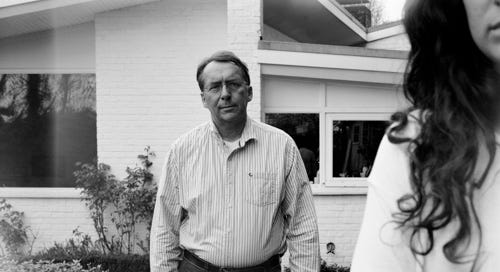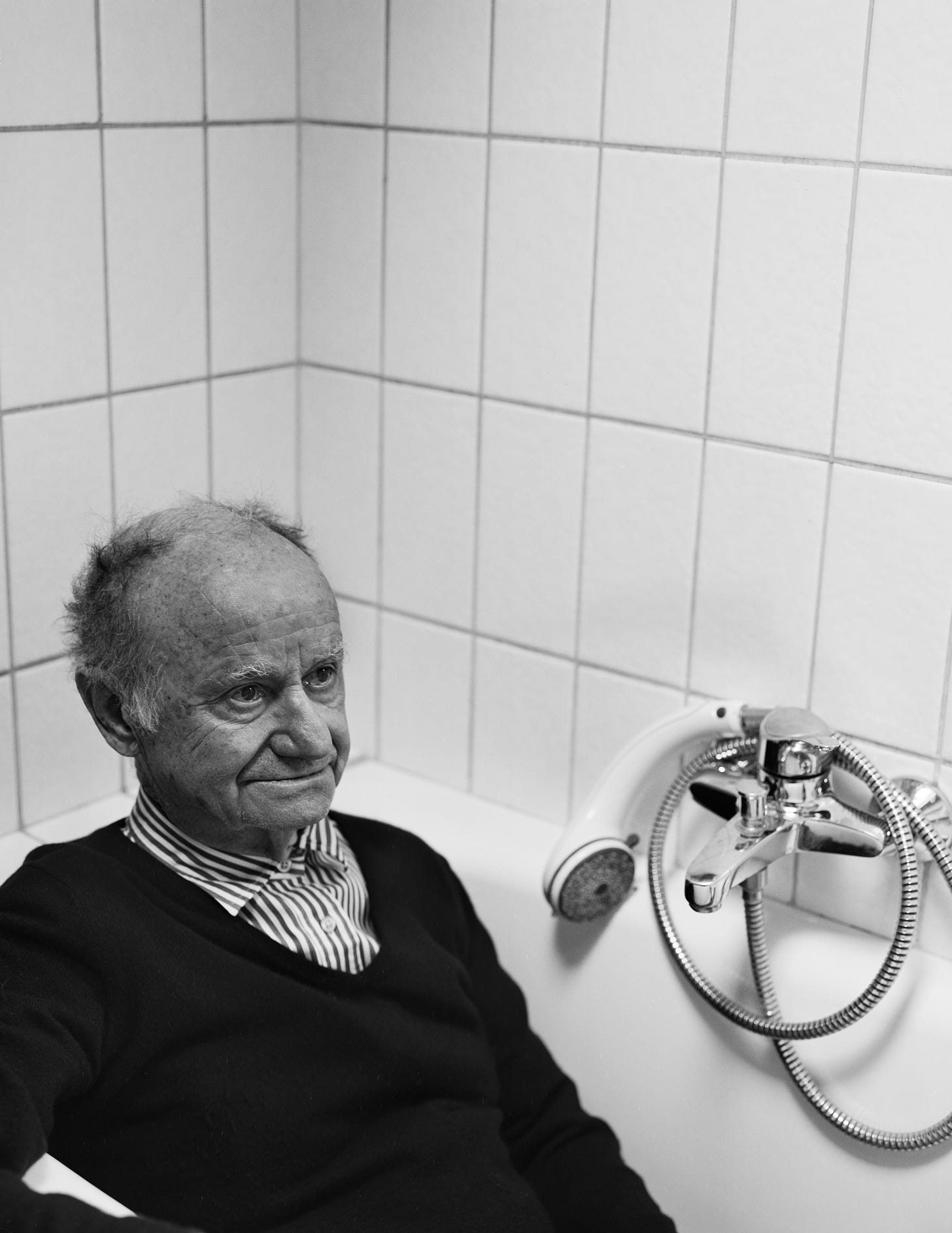What does it mean to photograph your father for the first time? It could mean, as in this photograph, placing yourself at the edge of the frame. You are halved, your father is seen in full, as though he is an image of your future self. For, while a parent often sees a child as what they are yet to be, a child might be sure to see a parent as what they have been. What would it seem like, then, to photograph your father for the final time?
Lea Thijs: “I let my photographs show me who I am.”
The photograph was taken in my grandparents' backyard in Brussels, Belgium.
My work focuses on my relationship with my father with regards to his recent diagnosis with bipolar disorder. Within this body of work, I wanted to take a self-portrait with my father to illustrate this collaboration. I set my large format camera in the garden, took my short cable release and inserted myself in the frame without knowing what the end result would be.
This photograph is special to me because it reminds me that this is my story too. This project was a way to handle sensitive information through visual representation for both of us. By including myself, I felt it has a stronger therapeutic effect on me.
Beyond this project, as a photographer, I enjoy collaborating with my subjects in the creative process of image making. I always keep in mind my subjectivity, and stay conscious of how my being impacts what my photographs show. I know I can't tell somebody else’s story in an impartial manner, although that's what people generally associate with photography. My point of view is always anchored in every picture. Instead of trying to hide this subjectivity, I use it as a starting point in my projects. I listen to people's stories and ideas, and then associate them with my sense of self and experiences of the world. I let my photographs show me who I am, rather than trying to control what I want them to say.
Photography is an impactful art form. It is a medium we use to communicate with others about beauty, our emotions, our perceptions, and so on. It is a tool that nearly everybody uses on a daily basis. Most people have an understanding and a relationship with the act of taking photographs. One of the ways we connect is through shared experience and the language of photography is sometimes easier to understand than other formats.
Two other photographs by Léa Thijs
Léa Thijs is a South African-Belgian Documentary Photographer. Her work revolves around themes to do with mental health and the ethical challenges experienced in representing others. Her personal and professional work are primarily shot on a large format analogue camera. The photographs below are portraits of her grandfather at home.
Last Week — Djbril Drame
My photography is a form of therapy for humanity. It's full of compassion, love and understanding.
Visual literacy is important and photography is the heart of it. A photograph teaches us 1000 words.
Read more: Sabodala Riders
Support Léa Thijs
Thank you for reading and sharing this feature. See more work on Léa’s website, where you can also purchase Safe House, the photo-book containing her work about her father.
Support Tender Photo
This is the 25th edition of the newsletter. Every week I feature one photograph and the photographer who took it. You’ll read a short caption from me, and a statement from the photographer. My goal is to set up conversations with the work of early to mid-career African photographers. If you know of any photographer whose work is deserving of attention, please email me with their name(s).
What readers are saying:
The second and third photos are somehow linked for me, the young men leaving behind a still lit fire, the older man on a bed, left alone. I once thought of starting a photography and poetry project around the question: What happens to what is left behind? After the photographers, the news and the people have moved on, how do the people that cannot move on live? — Chika Jones, on “We Are Dreaming Again” by Omorogie Osakpolor.









These are really tender photos. I am reminded that loving a person is taking care of them. Their body and their mind. I have always been concerned about how broken bones can heal but a broken mind cannot. It's always trying, but even in its best moments it is like the man in the last photo, sitting in a bath tub, holding its breath waiting for something to fall. Healthy or broken minds, we spend our life waiting. I think the difference is in what we are waiting for. Are we waiting for something to rise or for it to fall?